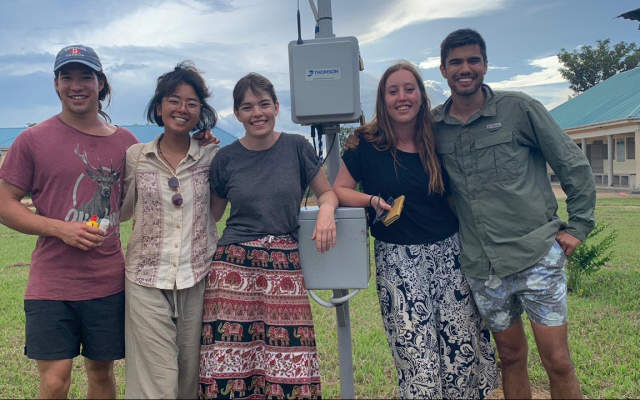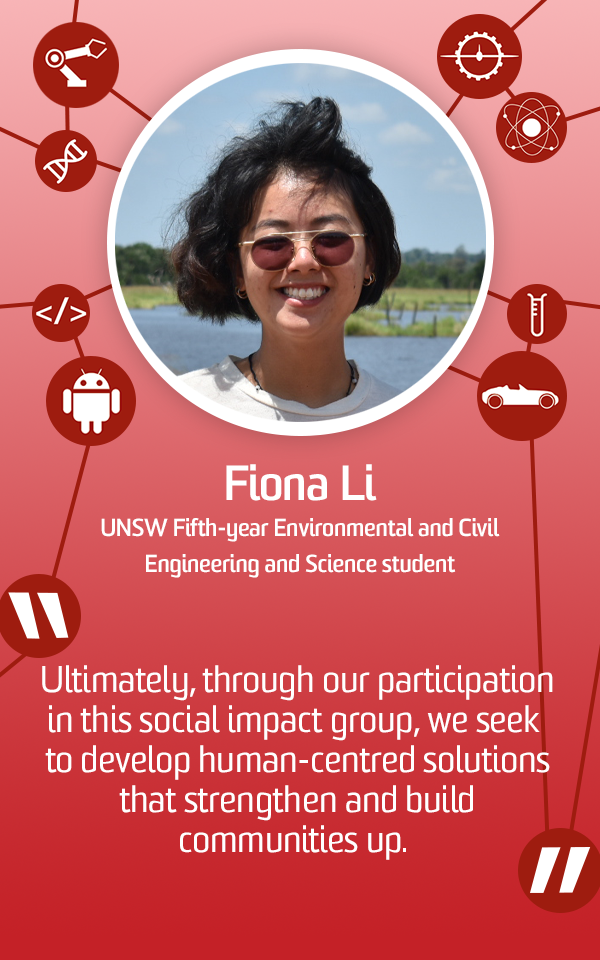
Joining the Drought Resistance Uganda (DRU) Social Impact team has been an extremely rewarding experience. The friendships I have gained along the way and the challenges overcome, have made for a unique and memorable experience while studying Civil and Environmental Engineering at UNSW.

Being a part of DRU added a humanitarian component to my study by exposing me to the positive impact we as engineers can achieve by combining compassion and problem-solving. For me, my passion for humanitarian engineering began last year in the course Fundamentals of Humanitarian Engineering (ENGG3001) run by Dr. Andrew Dansie. The course opened my eyes to the plethora of global projectswhich work collaboratively with locals to develop culturally appropriate solutions, address their basic human rights and needs and overall strengthen communities. After completing the course, I was keen to gain hands-on humanitarian engineering experience. When one of the student founders of DRU, Alice Hood, approached the ENGG3001 looking for recruits, I was immediately interested and applied and thus began my role as a core member of the DRU team!
DRU started as a project for the course Humanitarian Engineering Project (ENGG4102) and has now blossomed into its own Social Impact Project - a collaborative team of students, academics, specialists, and Ugandan locals. We seek to address the impact of climate change on developing nations by collaborating with locals to createsustainable solutions for water scarcity in northern Uganda. We partner closely with the not-for-profit Love Mercy Foundation (LMF) and their agricultural seed loan program, Cents for Seeds.
I am particularly passionate about this program as it not only addresses climate change but also empowers women by providing them with an income that contributes, to their autonomy, finances, food, education, and healthcare for their family. Through our student project’s collaboration with LMF, I have grown to understand the importance of bringing countries together to address seemingly insurmountable issues, such as climate change and gender inequality and the importance of building more resilient and adaptive communities.
A highlight for all of us was our trip to Uganda in 2019 where we experienced the rich Ugandan culture. Highlights include having clothes made in the local markets where hundreds of seamstresses work to produce beautiful handmade clothing made from vibrant African fabrics and patterns. We soon connected with a few women and learnt about their lives and children. Other highlights include going on an African safari tour, playing football with many locals, and enjoying delicious Ugandan foods like rolexes, maize and cassava. During our trip, we collaborated with the locals to develop sustainable solutions to tackle issues of water scarcityand strengthen the livelihoods of the thousands of women in the Cents for Seeds program. We installed two weather stations to aid farmers in determining the best time and type of crop to plant and witnessed firsthand the positive impact this program has on families and women throughout northern Uganda.
Our future aims and goals include weather data collection and dissemination, drought-resilient agricultural practices, irrigation solutions and GIS mapping. Ultimately, through our participation in this social impact group, we seek to develop human-centred solutions that strengthen and build communities up.
DRU is always looking for keen students wanting to make a positive impact by tackling global issues affecting vulnerable groups in northern Uganda. If you are interested in joining DRU, you can contact us via the ChallENG website - DRU Page.
